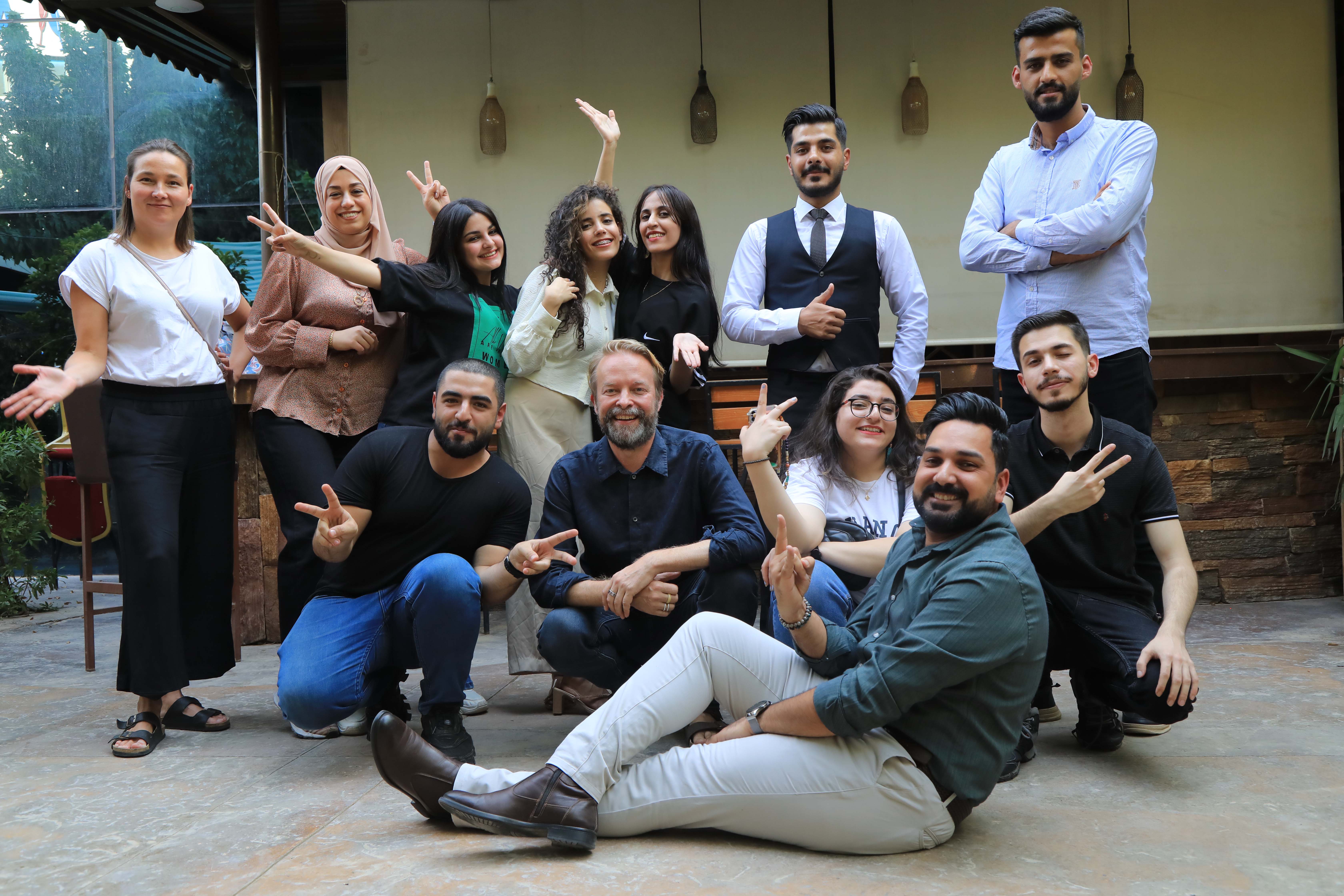Iraqi youth worry about climate crisis and social exclusion
Young people in Iraq are worried about the climate crisis, armed conflicts, unemployment, migration, discrimination and social exclusion, and deficiencies in the education and healthcare systems. They discussed social problems and solutions to them in a workshop on peace building and media skills organised in Erbil.

The young people participating in the workshop were most concerned about the climate crisis. Not only because the temperature in Iraq rose to nearly 50 degrees Celsius during the workshop, but also because the climate crisis is a serious and worsening problem that has many side effects. Besides the climate crisis, the workshop participants were concerned about social exclusion among young people, and they filmed a video about it.
The workshop was part of the Salam Peace Project, which the Ministry for Foreign Affairs launched in 2019. The project aims to support conflict prevention, mediation and peacebuilding, which are gaining more importance as the priority areas of Finland’s foreign policy. Results of the project’s workshops have been published on the Salam for Peace Facebook and Instagram accounts.
Hoping for a peaceful country
The young people in the workshop proposed more education, legislative reforms and better cooperation as solutions to the global problems. Problematic phenomena can be best tackled when people understand and have access to reliable information on the diversity of societies and people, the underlying causes of violence and discrimination and the effects of climate change. The workshop participants created new tangible ways to achieve desired improvements and objectives. They also stressed the need to involve young people in the cooperation and public debate.
The young people were asked about their hopes for the future. Their answers showed a hope for a better future:
“Iraq is free from violence and conflicts and has a lasting peace.”
“The Iraqi society is tolerant and everyone respects one another.”
“A strong and prosperous country where women are part of the success of society.”
“Iraq is a living and green country.”
“There are no child marriages or child labour in the country, and all children can go to school.”
“Unemployment rate is at its lowest, and young people have the chance to be successful.”
Altogether 1,065 young applicants for the workshop
The aim is that Finns, too, take part in the workshop each year. This year the honour fell on Anna Malinen, Deputy Head of Mission at Finland’s Embassy in Baghdad. Malinen praised the young people for their active and bold involvement in the workshop.
“The huge number of applicants shows that young people in Iraq have more enthusiasm than genuine opportunities to participate in and influence public debate. It is important that we listen to them,” Malinen says.
This year, 10 young persons were selected from among 1,065 applications for the workshop, which was organised for the fourth time. The Ministry for Foreign Affairs has commissioned Måndag, a creative agency, to carry out the Salam project. Another important partner is the Iraqi youth organisation Tech4Peace, which has given the programme local and international visibility in the social media.
Rim Mezian
Links
Salam presentation video for 2022
Iraqi and Afghan youth are motivated by a desire to promote peace
Young ambassadors for peace resolve conflicts and break the chain of revenge
Foreign Ministry's Salam Peace Project promotes media skills and networking among young people
Young ambassadors for peace in Iraq and Afghanistan sought by the Ministry for Foreign Affairs